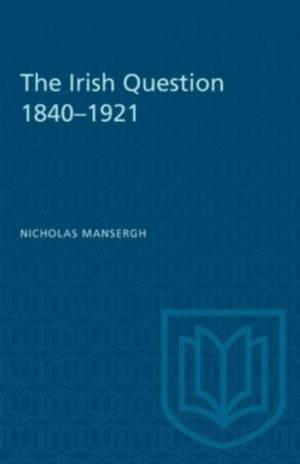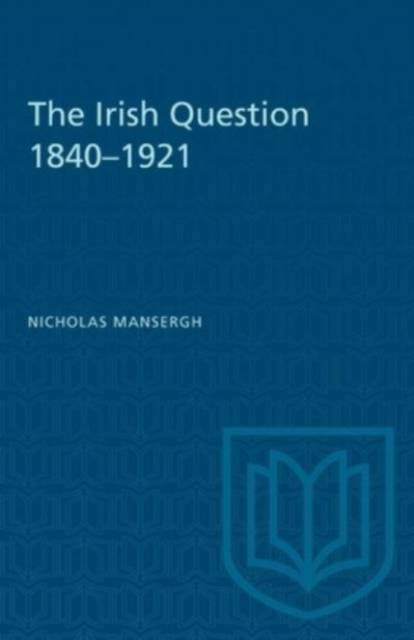
- Afhalen na 1 uur in een winkel met voorraad
- Gratis thuislevering in België vanaf € 30
- Ruim aanbod met 7 miljoen producten
- Afhalen na 1 uur in een winkel met voorraad
- Gratis thuislevering in België vanaf € 30
- Ruim aanbod met 7 miljoen producten
Zoeken
Omschrijving
Professor Mansergh offers an analysis of the nature of The Irish Question, 1840-1921. His study is not a narrative history. While the problems with which it deals have been suggested by the period it covers, it is with the problems and not the period it covers, it is with the problems and not the period that it is at root concerned. Those problems are: the interrelation of economic and social with political forces, the impact of Irish discontent upon the Liberal conversion to Home Rule, the character of the political, cultural and social forces behind revolutionary Irish nationalism; and the changing nature of the concept itself.
Much attention is given to the implications of Anglo-Irish relations in the wider context of nationalist-Imerial conflicts and for that reason special and ciritcal studies are made of the reflections and writingsof the Frenchman Alexis de Tocqueville and his friend de Beaumont, of Italian nationalists, notably Cabour and Mazzini, and of Marx, Engels and Lenin on the Irish question. The book was first published in 1940 under the title Ireland in the Age of Reform and Revolution. A second edition, greatly enlarged and almost whooly rewritten, appeared in 1965 (second impression, 1968) under the title of The Irish Question. The third edition includes a supplementary bibliography of works published since 1965, corrections and additions to the text, and a new Preface, 'Revisionist Themes', reconsidering earlier interpretations and questioning some earlier assumptions about the events of Ireland's revolutionary years in the changed context of the seventies.
Much attention is given to the implications of Anglo-Irish relations in the wider context of nationalist-Imerial conflicts and for that reason special and ciritcal studies are made of the reflections and writingsof the Frenchman Alexis de Tocqueville and his friend de Beaumont, of Italian nationalists, notably Cabour and Mazzini, and of Marx, Engels and Lenin on the Irish question. The book was first published in 1940 under the title Ireland in the Age of Reform and Revolution. A second edition, greatly enlarged and almost whooly rewritten, appeared in 1965 (second impression, 1968) under the title of The Irish Question. The third edition includes a supplementary bibliography of works published since 1965, corrections and additions to the text, and a new Preface, 'Revisionist Themes', reconsidering earlier interpretations and questioning some earlier assumptions about the events of Ireland's revolutionary years in the changed context of the seventies.
Specificaties
Betrokkenen
- Auteur(s):
- Uitgeverij:
Inhoud
- Aantal bladzijden:
- 344
- Taal:
- Engels
- Reeks:
Eigenschappen
- Productcode (EAN):
- 9780802022271
- Verschijningsdatum:
- 15/12/1965
- Uitvoering:
- Paperback
- Formaat:
- Trade paperback (VS)
- Afmetingen:
- 140 mm x 216 mm
- Gewicht:
- 435 g

Alleen bij Standaard Boekhandel
+ 151 punten op je klantenkaart van Standaard Boekhandel
Beoordelingen
We publiceren alleen reviews die voldoen aan de voorwaarden voor reviews. Bekijk onze voorwaarden voor reviews.











